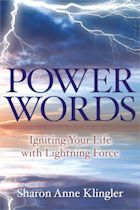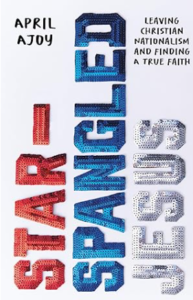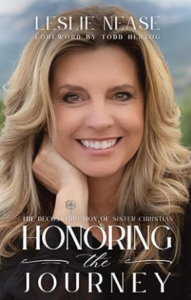 I received a complementary copy of this book from Hay House for review purposes. The opinions are completely my own based on my experience.
I received a complementary copy of this book from Hay House for review purposes. The opinions are completely my own based on my experience.
Have you ever considered the power your everyday word choices have on your emotions? I hadn’t until I read Sharon Anne Klingler’s Power Words. “Throughout this book,” she writes in the introduction, “we’ll be working with words that you can use for a multitude of reasons … you’ll be able to apply the energy of specific words for each task.”
I’m a big proponent of affirmations, and in Power Words Klingler gave me a different way to use this technique. Instead of lengthy affirmations, Klingler recommends shortening these powerful thoughts to one or two words. The affirmation “I live in a state of love and joy”, for example, turns into “Joy now!” with Klingler’s power word treatment. “Notice how (power words) call you to action the very moment you use them,” the author says. I tried shortening a couple of my favorite affirmations to one or two words and I felt the difference – the brief, to the point, power words really did work in my case.
What about those naughty words you may say under your breath, or more loudly when frustrated in traffic? Klingler has an answer for that, too. For example, she recommends uttering “darn” instead of “damn”. A simple softening of that expletive? No, it’s more than that, Klingler writes. “Darn means to mend or repair. By making the change from damn to darn, you’re actually voicing the intention to repair the frustrating element rather than condemn it,” she advises. If you are one to let loose an f-bomb, Klingler has a substitute for that big nasty, also. Read the book to find out what it is, and the reason behind using it.
While emphasizing the power of words, I liked how Klingler put the use of words in perspective. Yes it is a good idea to use more life enhancing words, she says, but at the same time “you can’t live your life as a word-Nazi, fearing or condemning yourself for voicing every negative word. Give yourself permission for your own self-expression,” she writes. There’s a gentle, caring energy behind the book. It will likely take some time to notice and transform the words you use. Don’t be too hard on yourself if you let loose an expletive now and then. By following Klingler’s advice, those occurrences should be less frequent.
I also liked a number of inspiring quotes Klingler includes in her book – like this one from Ludwig Wittgenstein: “Uttering a word is like striking a note on the keyboard of the imagination.” If you are like me, reading power words will cause you to consider “what words am I most often playing on my keyboard?”
You can get Power Words from these book sellers:



